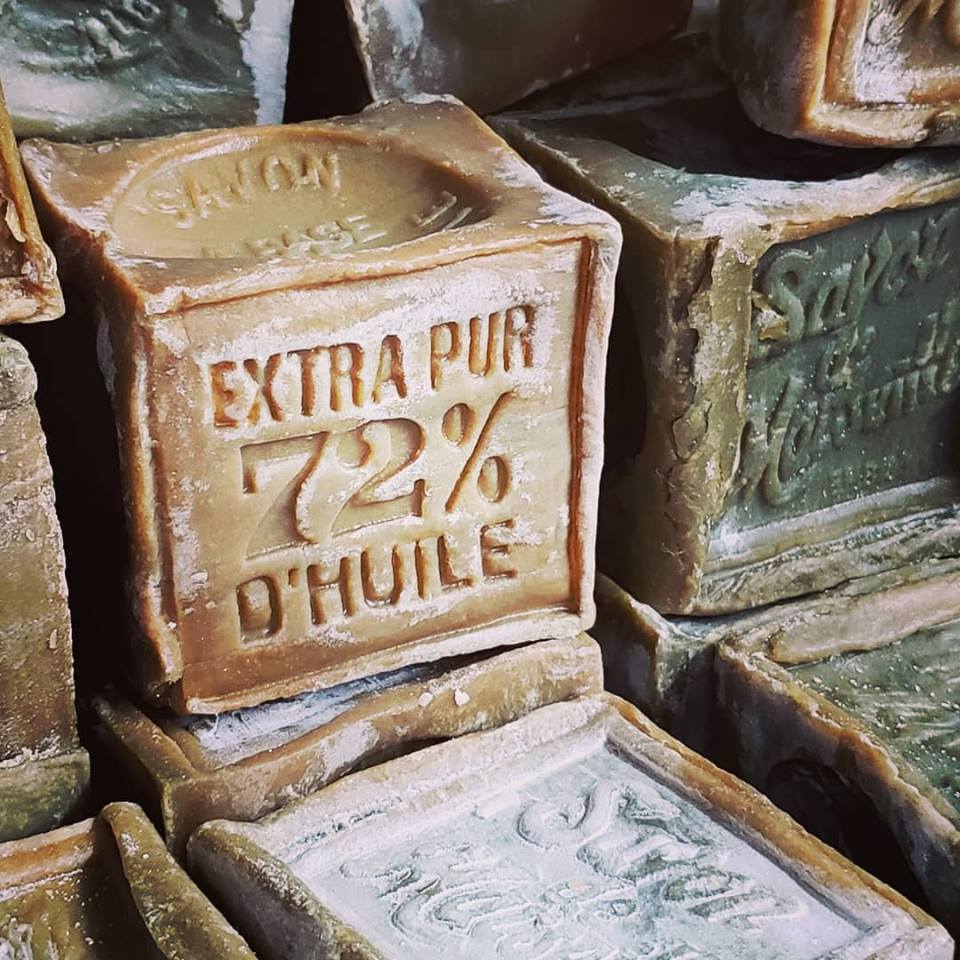FAQ
Les questions fréquentes
Where are your products come from?
Our Marseille soaps are handcrafted in Marseille, France. We personally pick them up from two of the last soap factories known for respecting the genuine manufacturing process which is unique to this soap.
Even though some of our Aleppo soaps are made in Syria, we import them from a French company located near Paris.
Why don't you have a store on the street?
Thanks to our website, we can easily reach our customers all over Canada. A brick and mortar shop has some pro’s but a lot of con’s. Especially when one basically offers a sole product as it is the case here.
However, in order to be physically speaking more visible, we do participate to several shows in Quebec. Our soaps are also available at our retailers.
Cosmetics without packaging isn't a lack of hygiene?
Not at all. Check our Environmental practises page and find out why most of Marseille soaps (and us) can’t stand packaging.
It is also good to know that all our products are stored away from dust and are kept in sealed boxes. If it reassures you, rinse your soaps just like you do with an apple bought at the grocery store, even if cleaning a cleaning product seems a little strange.
Why some of olive oil based soaps are not green?
While drying and aging, a classic genuine Marseille soap slowly loses its color on the surface. This is a proof that you have in your hand a dye-free soap. Any real Marseille soap, just like Aleppo soap, always end up brown after a while.
Here we can clearly see this phenomenon on a olive oil based soap, although soaps made of coconut oil and palm oil suffer the same fate.
Aren't Marseille soaps made with 100% olive oil?
Not anymore and not always. For the past two centuries, most Marseille soaps are not made with olive oil only. This is due to both technical and economical factors.
Olive oil is more difficult to saponify because it gives a much softer soap. It would be essential to let it dry for several months, which would result in higher storage costs, raising the final price as it is the case with Aleppo soaps.
Also, other oils like coconut oil and palm oil give soaps some interesting properties such as hardness and foam in the same time.
However, the amount of saponified olive oil can represents 40% and more of the total of oils found in a Marseille soap.
Aren't your soaps too big?
Genuine Marseille soaps might seem too big to be used easily but it is also very easy to cut them when they are not too dry.
For the record, Marseille soaps used to be sold in big blocks of 30 or 50 kg! Washer women back then just cut pieces of soaps right from the block. beside, you may have already noticed that the bigger a soap is, the cheapest it is.
Are your soaps hypoallergenic?
Hypoallergenic
Designed to reduce or minimize the possibility of an allergic response, as by containing relatively few or no potentially irritating substances.
Traditional Marseille soaps, just as Aleppo soaps, are considered hypoallergenic since they contain only the basic essentials to make a soap, therefore drastically reducing the possibility of allergies.
Scented soaps, whether they are from Marseille or not, contain a lot more ingredients.
They are more likely to cause skin reactions to people with an allergy to one or more ingredients found in these type of cosmetics, typically fragrances and their molecules.
Speaking of fragrances
A traditional Marseille soap, whether it is a toilet soap or a household soap, does not contains fragrances except its natural scent.
Scented soaps have natural fragrances while others are scented with synthetic fragrances.
A natural fragrance is an essential oil which is indicated by its botanical name in the list of ingredients. For example, Rosa Gallica L is an essential oil of rose.
Synthetic fragrances are used when one wants to reproduce the smell of fruit or when production of essential oil is impossible for various reasons. For example, Lily of the valley being a toxic and deadly flower, this might be one good reason to use artificial scents.
Note: a naturally scented soap is not necessarily better in terms of safety. Plants, flowers, and even more so their essential oils, may be as as toxic or allergenic as synthetic fragrances. For this reason, we do not use the marketing rhetoric which portrays the presence of essential oil in a soap as the best thing that could happen to your skin.
What we should remember is that regardless the nature of a given fragrance; the late is often the primary reason of allergies when a scented soap is used.
Are your soaps colored?
A traditional Marseille soap contains no dye. Some scented soaps do contains dyes. The presence of dye is indicated in the list of ingredients with the letters CI followed by a five-digit number. For example CI12490 indicates a red dye.
Are they tested on animals?
No. The European Union banned those tests in 2004 on finished cosmetic products and since 2009 tests on single ingredients and combinations of ingredients have also being banned.
Note: three very specific tests are still temporarily allowed but mainly concern industries that develop more complex cosmetics products than Marseille soaps, like lipsticks, anti-aging creams, etc.).


